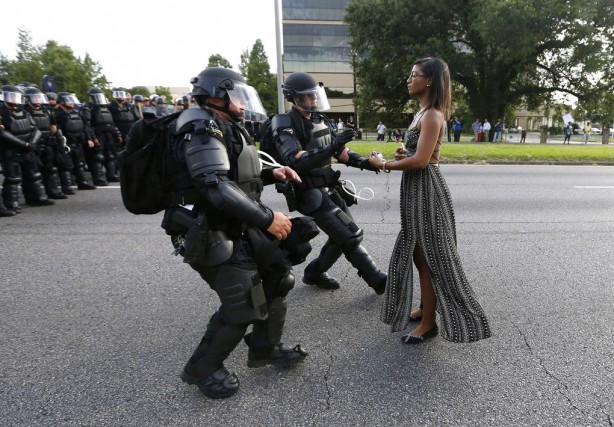Happy Fourth of July! Anti-Americanism Is Stronger than Ever!
Happy Fourth of July! The American Declaration of Independence of 1776 has inspired many nations and millions of people around the world in the ensuing 240 years to fight for their freedom and build their own independence.
This year’s Fourth of July, though, is also worrisome as it urges us to acknowledge a trend in Bulgarian society that has reached the highest ranks of power. After the collapse of the socialist regime in Bulgaria in 1989, anti-American feelings have never been (1) given so much respect by the Bulgarian society and the Bulgarian government; and anti-American feelings have never been so (2) closely related, even subordinated, to pro-Russian forces.
Notably, the Bulgarian prime minister did not allow two U.S. fighter jets belonging to our allies who came to our country as part of a routine visit to make a ceremonial 30-second flight over Sofia in honor of the Fourth of July. What was the reason? The ceremony, our prime minister said, would create noise and could disturb or frighten the citizens of Sofia.
How can we take the noise argument seriously? After all, Sofia’s boulevards handle the daily and ever-present and dangerous bikers whose machines generate noise at decibels much higher than the noise that would be produced by our allies’ jet fighters. However, our prime minister, a person who is an expert in police matters, has a high degree of tolerance for traffic violations and lets these crooks get away with the lack of law enforcement on Sofia streets.
Mr. Prime Minister, if you are afraid of the noise of the planes of our allies, what are you going to do with the noise of those of our enemies?
While making sure that nothing will disturb the hearing of Sofia citizens on the Fourth of July, Prime Minister Boyko Borrisov doesn’t have any concerns about the noise produced by the loud machines of a private pack of bikers branded as “President Putin’s Wolves.” I have serious doubts that the Russian head of state asked any Bulgarian authorities to grant permission to these emissaries who created repeated trouble including street fights. But they are most welcomed by the Bulgarian prime minister who is quick to say "no" to allies and yet provides police escort to others.
The inevitable aftermath of this political inconsistency — a mixture of incompetence and populism — is the rise of neutralism. Neutralism is a dangerous ideology that spreads easily and tends to stick around (as the results from Brexit in the U.K. show). I heard voices saying “We shouldn’t have allowed either the fighters or the wolves, we should be neutral!” The neutrality of the good is the best food for the evil.
Let’s look at the political direction of our prime minister, easily distinguishable in his recent statements, which could be best summarized by his words, “You cannot create peace with war.” This reasoning brings us back to an earlier era of Borissov’s governing style, the time of Borissov’s doner kebob diplomacy which preceded the Hamas attack in Burgas.** Today, these types of arguments are not worrisome, they are dangerous! Show me an example in history when a crusade of evil has been stopped with prayers not with force! Hitler? Milosevic? Slavery in the United States?
Securing the safety of the people requires continuous care; chaos blossoms when left alone. That’s why it is difficult not to be troubled when your prime minister says he wants to see yachts not fleets in the Black Sea. To dream about vacation boats floating around on the waves which cover foreign submarines that have a missile range of 1,500 kilometers (about 938 miles) is an idyll that Mr. Boyko Borissov cannot afford!
The chaos in Russian-Bulgarian relations is due to the fact that when it comes to words, we are titans, and when it comes to military power, we are dwarfs. I hope the Warsaw NATO Summit will change both things. We all want good relations with Russia that are based on common respect. There are numerous factors that are needed to build respect, and having an adequate defense is certainly one of them.
The government of Sakskoburggotski (2001-2005) negotiated the terms of Bulgaria’s membership in NATO and in the EU and made it a reality.*** His government built two temporary and three permanent Bulgarian-American military bases on our territory, while maintaining the most constructive and productive relations with Russia since 1989. It provided an example that demonstrated big time that our relations with the U.S. suffer from being used as a counterbalance to our relations with Russia. And vice versa.
We know the good is going to win in the end, but it is in the hands of our governments to make it happen earlier and at a lower price.
Happy Fourth of July. May the force be with you!
* Translator’s note: The Atlantic Club of Bulgaria is a nongovernmental organization that promotes strong ties between Bulgaria and NATO.
**Translator’s note: The term “doner kebob diplomacy” emerged when the Bulgarian prime minister said, “We have a doner kebob on every street corner,’’ to support his argument that Bulgaria is not a target of terrorist attacks because of the good relations Bulgaria has with Arabs and Arab countries.
***Editor’s note: Simeon Sakskoburggotski was Bulgaria’s former monarch who returned to the country in 2001 with political ambitions.

